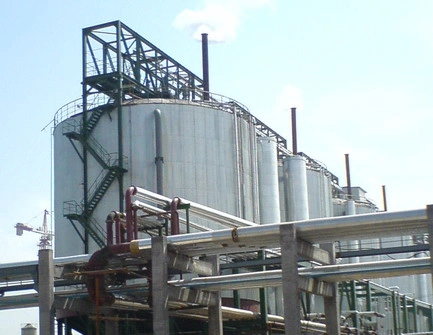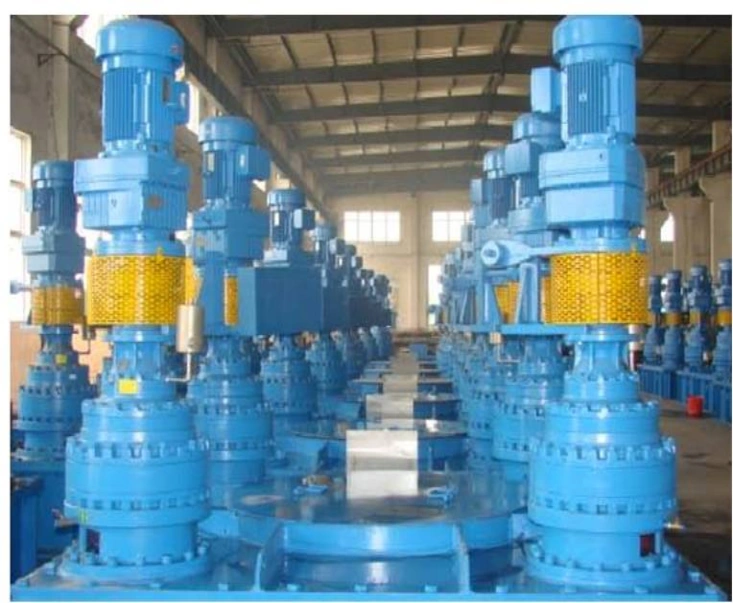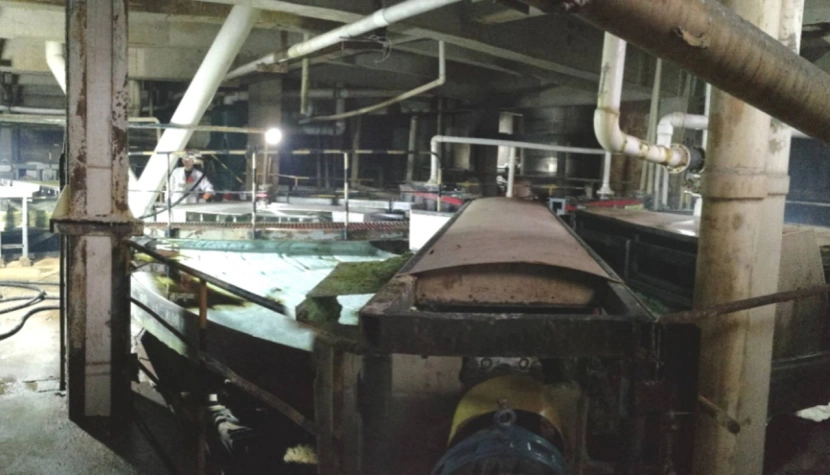In today’s wastewater treatment facilities, effective sludge management is a cornerstone of operational efficiency and compliance with stringent environmental regulations. The increasing demand for sustainable and cost-effective solutions has spotlighted advanced technologies like the deep cone thickener. This specialized equipment plays a pivotal role in reducing sludge volume by concentrating solids, thereby streamlining subsequent treatment processes. Often integrated with automated filter presses, deep cone thickeners are revolutionizing sludge handling across various industrial sectors. This comprehensive guide delves into the functionality, design, and benefits of deep cone thickeners, offering valuable insights for facility managers and engineers aiming to optimize their operations.
Overview of Deep Cone Thickeners in Wastewater Treatment
Deep cone thickeners are indispensable in the initial phase of sludge management, serving as a foundational step in wastewater treatment.
Purpose and Function of Deep Cone Thickeners
The primary objective of deep cone thickeners is to elevate the concentration of solids within sludge through the natural process of gravity settling. By removing excess water, these systems significantly reduce the volume of sludge that requires further processing or disposal. This reduction translates into substantial cost savings, as it minimizes the resources needed for transportation and treatment. Additionally, the resulting thicker sludge maintains a pumpable consistency, facilitating seamless transition to downstream processes such as dewatering or drying, while adhering to environmental standards.
Key Components and Operational Principles
A deep cone thickener is characterized by its distinctive cylindrical tank, which tapers into a steep, cone-shaped base to enhance solids settling. Essential components include a feedwell that regulates slurry entry to prevent turbulence, rakes or scrapers that continuously move settled solids toward the underflow discharge, an overflow channel for clear liquid removal, and a robust underflow release system. The operational principle is straightforward yet effective: slurry is introduced into the feedwell, where its velocity is reduced to allow solids to settle under gravity. Clear liquid rises and exits via the overflow, while the concentrated sludge is directed to the underflow for further handling.
Operational Features of Deep Cone Thickeners
The design and operational mechanics of deep cone thickeners are optimized to ensure efficient separation of solids from liquids.
Importance of Settling in Solids Concentration
Settling is the core mechanism that drives the effectiveness of deep cone thickeners. By leveraging gravity, the system allows heavier solids to sink to the bottom, forming a concentrated underflow, while lighter liquids rise to the top for overflow. This process not only increases solids concentration but also improves the clarity of the effluent, making it easier to meet discharge regulations and enhancing the efficiency of subsequent treatment stages.
Challenges in Achieving Efficient Sludge Settling
Despite their efficiency, deep cone thickeners can face challenges that impact performance. Issues such as the formation of dead zones—where sludge remains stagnant—uneven flow patterns, or inconsistent solids distribution can compromise settling efficiency. These problems may lead to reduced throughput, increased operational costs, and potential non-compliance with environmental standards, necessitating careful design and maintenance to mitigate such risks.
Design Considerations for Deep Cone Thickeners
The performance of deep cone thickeners hinges on meticulous design considerations tailored to specific operational needs.
Tank Geometry and Rake Design
The steep cone angle of the thickener is a critical design feature, as it accelerates the settling process and prevents solids from accumulating or clogging the system. The rake system, with its adjustable blades, plays an equally vital role by continuously agitating and moving settled solids toward the underflow discharge point. This dynamic interaction ensures a consistent flow and prevents blockages, maintaining the thickener’s operational integrity over extended periods.
Material Selection for Corrosion Resistance and Durability
Given the corrosive nature of wastewater sludge, which often contains chemicals and organic matter, material selection is paramount. High-grade stainless steel and durable polymer composites are commonly employed to withstand these harsh conditions. NHD, with its extensive experience from over 800 projects in industries such as phosphoric chemicals, sulfuric acid production, and environmental protection, prioritizes corrosion-resistant and long-lasting materials to ensure the longevity and reliability of their thickeners.
Performance Optimization in Thickener Applications
Several factors contribute to the optimal performance of deep cone thickeners in industrial settings.
Energy Efficiency and Power Consumption
Deep cone thickeners are engineered for energy efficiency, utilizing gravity as the primary force for settling and minimizing the need for excessive mechanical power. This design reduces operational costs and aligns with sustainability goals, making them an attractive option for facilities aiming to lower their environmental footprint.
Impact on Sludge Settling Rate and Clarification Quality
The steep cone design significantly enhances the settling rate by providing a confined space that encourages rapid solids accumulation. This results in a higher underflow solids concentration and clearer overflow, which are critical metrics for evaluating thickener performance. Improved clarification quality also reduces the burden on downstream treatment processes, enhancing overall plant efficiency.
Integration with Automated Control Systems
Modern deep cone thickeners are equipped with advanced automation features, including sensors and Programmable Logic Controllers (PLCs) paired with touch-screen interfaces. These systems enable real-time monitoring of parameters such as sludge level, flow rate, and solids concentration. The integration of PLCs ensures precise adjustments and consistent operation, even under fluctuating load conditions, thereby maximizing reliability and performance.
Automated Filter Presses and Their Synergy with Thickeners
After thickening, the dewatering process is often completed using automated filter presses, which complement the capabilities of deep cone thickeners.
Functionality of Automated Filter Presses in Dewatering Processes
Automated filter presses operate through a structured sequence: slurry is fed into sealed chambers, where it is compressed using diaphragms or air to expel water, followed by optional cake washing and automatic discharge. This fully automated process, controlled by PLCs, ensures continuous operation and can reduce moisture content in phosphogypsum filter cakes to as low as 10%—a significant improvement over the industry standard of 25%. The ability to apply pressures up to 16 kg further enhances dewatering efficiency.
Benefits of Combining Deep Cone Thickeners with Filter Press Systems
The synergy between deep cone thickeners and automated filter presses is a game-changer for sludge management. Thickeners provide a uniform, concentrated feed to the filter presses, which improves filtration rates and minimizes cloth clogging or fouling. The use of polymer-based filter components further refines the process, delivering sharper separation and higher-quality cake output, ready for disposal or reuse.
NHD: A Trusted Supplier for Industrial Filtration Solutions
New Hongda (NHD) stands out as a leading provider of industrial filtration solutions, boasting a global footprint with over 800 completed projects and ongoing partnerships with more than 1,000 clients. Their product portfolio includes deep cone thickeners, vacuum filters, and automated filter presses, all designed to meet diverse industrial needs. NHD’s commitment to innovation is evident in their small-scale testing facilities, which allow for precise design optimization before full-scale implementation, ensuring tailored and effective solutions for challenging environments.
Conclusion
Deep cone thickeners are a vital asset in modern sludge management, offering a highly efficient method for concentrating solids and preparing sludge for downstream processing. When paired with automated filter presses from reputable suppliers like NHD, which commands a 50% market share for thickeners in China, industrial facilities can achieve drier cake outputs, reduced energy consumption, and enhanced operational reliability. The thoughtful integration of advanced design elements—such as optimized tank geometry, durable materials, and automated controls—ensures that deep cone thickeners deliver consistent performance across a wide range of industrial applications, from wastewater treatment to chemical processing. Investing in these technologies not only improves efficiency but also supports long-term sustainability goals.
FAQs
Q1: What makes deep cone thickeners suitable for wastewater treatment?
A: Deep cone thickeners feature a steep cone design and efficient rake systems that accelerate solids settling and prevent clogging, making them ideal for concentrating sludge in wastewater treatment with minimal operational disruption.
Q2: How do automated filter presses improve dewatering efficiency?
A: Automated filter presses enhance dewatering by executing a controlled cycle of feeding, pressing with diaphragms or air drying, optional washing, and automatic cake discharge, achieving moisture levels as low as 10% with pressures up to 16 kg, far surpassing traditional methods.
Q3: Why choose NHD’s equipment over other suppliers?
A: NHD’s extensive experience across 800+ projects worldwide, combined with innovative small-scale testing and tailored designs, ensures their filtration equipment performs reliably in demanding environments, serving clients in regions like the USA, India, and Turkey with proven results.




